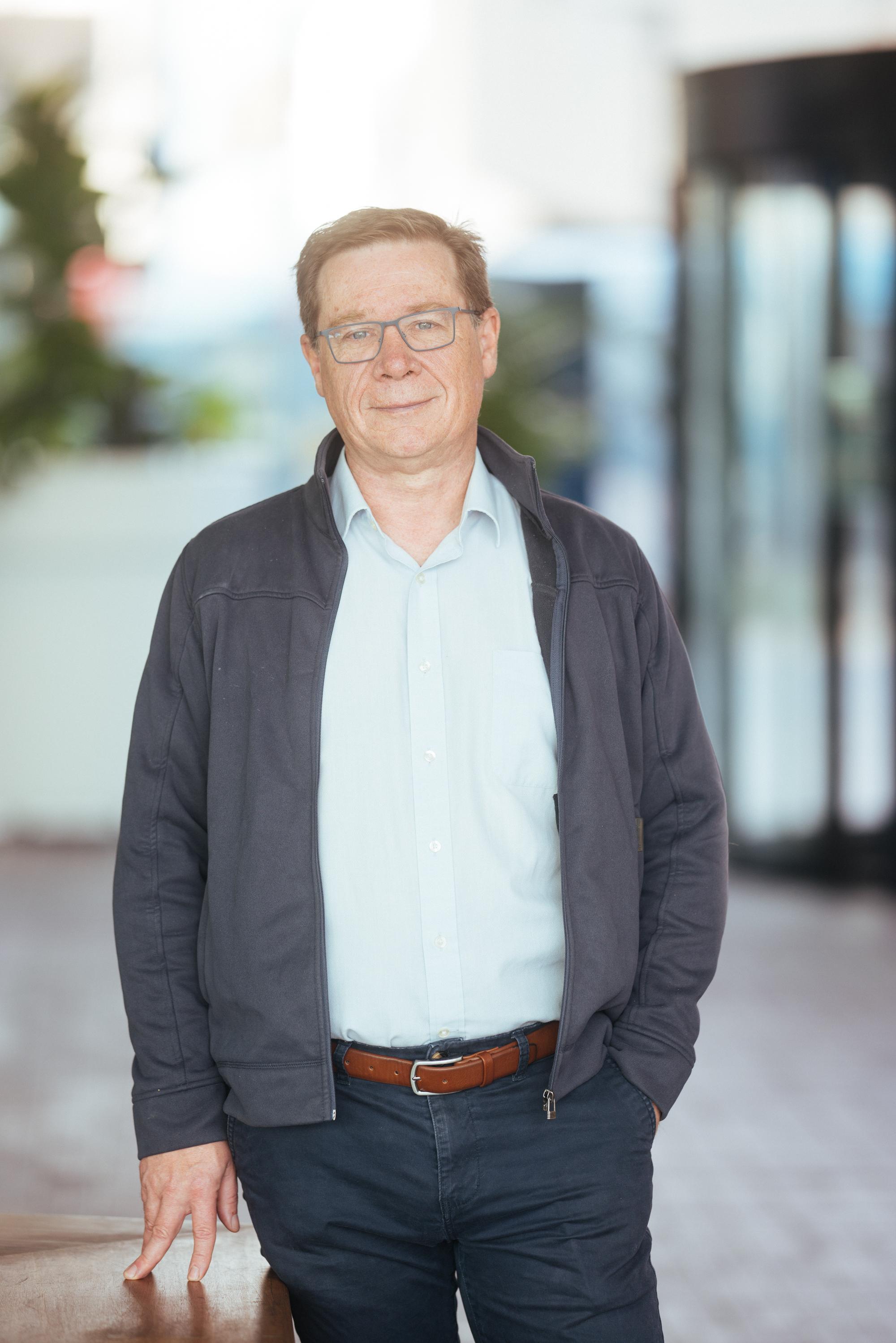Connected Conversations | David Foley
In our next instalment of Connected Conversations, we chatted with Dr David Foley about his extraordinary drive to care for others, especially those facing challenges and needing extra support both in his family, for his students and his community. The Adelaide Nursing School celebrates its 25th anniversary this year and David has been there since it was established, read on to learn about David’s compassionate approach to the past few months.

Please tell us a little bit about yourself.
Hi, I’m David. I have been lecturing in the Adelaide Nursing School since its inception 25 years ago, apart from a brief one-year teaching role in Dunedin, New Zealand. I teach emergency care, disability and chronic disease, microbiology, immunology and infection control, pathophysiology, pharmacology, child development, clinical skills and more! As an educational specialist, my role entails teaching content in these areas and developing teaching expertise within the Adelaide Nursing School. My research is usually connected with teaching the use of simulation and disability care. I am inspired to develop nurses into caring empathetic individuals who value all people. This inspiration comes from living with people who have disabilities, mental health problems and drug dependency. My wife and I have lived with lots of people who have found life difficult. For two years we lived in, inner-city Melbourne as community house leaders. During this time our first son was born with Down syndrome. The people we lived with at this time, who had their own significant challenges, became our most caring and supportive friends. This experience and the experience of caring for our son Ted, is what inspires me in my work and life. I have also worked for over 10 years in an emergency department and the most fulfilling part of this role, was not the emergencies but caring for challenging and distressed people. I live with my wife who works as a chaplain in the Adelaide Women’s Prison, my oldest son with Down syndrome and my youngest son who is a student at the University of Adelaide. Recently my daughter was forced home from London due to COVID-19.
The Return to Campus Roadmap is now in place. What are you most looking forward to about being back on campus?
I love teaching my students, particularly small groups of students and so I am really looking forward to tutorial teaching and exploring the important parts of effective care. I also like teaching to large groups and look forward to that returning at some stage in the future.
What aspects of teaching online do you enjoy the most?
I enjoy online teaching and have found the personal Zoom meeting with students, very rewarding. So many of our students have been challenged by the circumstances forced on them by COVID-19. I have found it fulfilling to listen to their situation and develop strategies to enable them to thrive in their course. I have also enjoyed exploring concepts with two-minute videos on topics including; ‘what is a disability, what is restrictive practice and how to communicate with a person who has limited expressive language.’ I do however miss face-to-face contact with my students and colleagues.
How do you set boundaries when working at home between your work life and your home life?
I work in a study, but instead of taking 35 minutes to get to work, it takes three seconds! That move to my workspace creates the boundary which is reinforced by having a virtual backdrop behind me, making it more obvious that I am working. I don’t find it hard to work at home, as I completed my PhD on a desk in the living area with at least seven people in the house!
Were there any outside of work challenges?
I have been very fortunate as there has been little impact on my circumstances except my daughter returning from London, to live at home with us. My son was also restricted from going to work and so the house was busy. However, there have been personal challenges for us including when my mother-in-law died in a nursing home and COVID-19 made it very hard for the family, as they could not visit her. My father has also been very unwell and only his wife and I can visit, which we do every day. Using video calls with family who cannot visit has really helped us get through this period. Caring and noticing the needs of others was an effective antidote to the COVID-19 social distancing; it was great starting up a Facebook group for my street to develop community and care for our older, housebound neighbours.
Is there anything from the past few months you would like to see implemented on a permanent basis?
The regular use of video conferencing with Zoom and related applications to enhance connections with students. The replacement of face-to-face meetings with Zoom. The use of short videos to explore interesting and challenging concepts.
What is the one thing you are most looking forward to doing or seeing when you are back on campus?
My students!
All things considered; what good things have you discovered or learned during this time?
You can achieve a lot more personal connection with video calls than I thought was possible, this has occurred with students and colleagues as well as dying and grieving family. Being physically close is better but Zoom brought something to us, that was not possible 10 years ago.
Name three things you won’t miss about this current moment in time.
People’s fear of the pandemic, the foolishness of some leaders and the inability to buy toilet paper!
And the three things you won’t forget…
That my prediction in my virology lecture came true!
The death and funeral of my mother-in-law.
The face-to-face Zoom meeting with my students.
And one more, the sense of community that developed.
